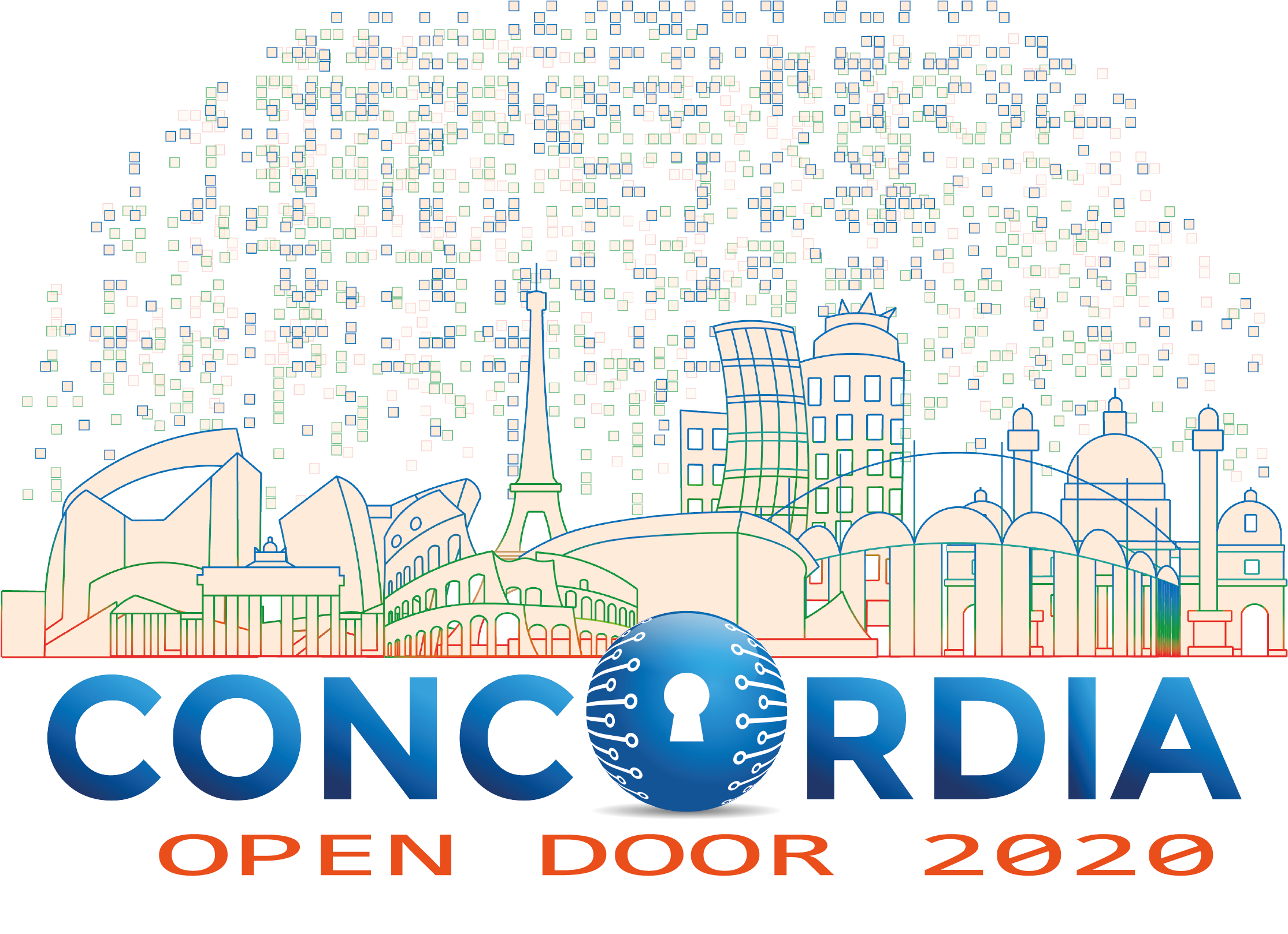CONCORDIA OPENED THE DOOR IN CYBERSPACE

Cyberspace is an idea that resides in our minds but has a poorly concrete image. When I was a doctoral student in software reliability, I thought cyberspace was the data superhighway. My proudly written code could exchange data with other code incredibly fast, no matter where both were running. I haven’t genuinely thought about the information behind the data until I heard of the Yahoo 2013 data breach. How can I depend on a piece of software if somebody can intentionally interfere with my data? Of course, I was not the first one with this thought, and cybersecurity was already a thing. The more cyberspace was interconnected with the physical space, the more security mechanisms were needed to avoid repercussions on anyone’s life. In CONCORDIA, we believe that discussions are essential to building cybersecurity and, despite the physical proximity restrictions ruling this year, we organized our annual event in a virtual venue. On last 28th and 29th of October, CONCORDIA opened its door in cyberspace.
CONCORDIA Open Door 2020 (COD2020) was the second edition of this recurring meeting among academia, industries, policymakers, and public administrations. These two days’ objectives are to create synergy between different stakeholders from different domains and collect feedback for the future European cybersecurity landscape. The platform we chose allowed attendees to resemble an actual event: the main stage for the talks and panels, coffee break rooms to meet random attendees, discussion rooms for parallel end-of-the-day discussions, and an exposition area for both industries (mainly start-ups) and H2020 consortia. We reached almost 170 attendees on the first day and 100 on the second day, with nearly 200 unique attendees logged in the virtual venue during COD2020.
The ENISA executive director Mr. Lepassaar started the event with his keynote to introduce the first panel topic: European digital sovereignty. Besides Mr. Lepassaar, other panelists were prof. Dreo (CONCORDIA coordinator), Mr. Sancho Bodero (head of unit “Cybersecurity technology and Capacity Building”, DG CONNECT, European Commission), and Ms. Gamon (member of the European Parliament). The panel, moderated by Arthur Van Der Wees, highlighted the importance of getting the community involved in decision-making and drafting legislation regarding cybersecurity. Further, they stated that it is essential to build a solid framework with clear rules to define cyber-secure and that we can gain digital independence, but we need a tight community.
The ENISA executive director Mr. Lepassaar started the event with his keynote to introduce the first panel topic: European digital sovereignty. Besides Mr. Lepassaar, other panelists were prof. Dreo (CONCORDIA coordinator), Mr. Sancho Bodero (head of unit “Cybersecurity technology and Capacity Building”, DG CONNECT, European Commission), and Ms. Gamon (member of the European Parliament). The panel, moderated by Arthur Van Der Wees, highlighted the importance of getting the community involved in decision-making and drafting legislation regarding cybersecurity. Further, they stated that it is essential to build a solid framework with clear rules to define cyber-secure and that we can gain digital independence, but we need a tight community.In the afternoon, we discussed the European cybersecurity education challenges in a second panel. Panelists Ms. Chatzopoulou (consultant at TÜV Trust IT), Mr. Prieto (Chief Education Officer at EIT Digital), Dr. Halunen (VTT Research), and Dr. Nai Fovino (Deputy Head of Unit at European Commission – Joint Research Centre) all agreed that it is necessary to develop a unified, practical, and physical approach to cybersecurity skills in the European Union. There are few offerings in terms of training and courses for cybersecurity professionals, and cybersecurity is still in the very early stage compared with other academic topics. Again, the main idea is to connect stakeholders to connect knowledge and figure out how to classify cybersecurity domains and build educational programs.
During the second day, we discussed investments and industrial challenges with a focus on start-ups. Mrs. Maria Lundqvist “decrypted” for the European Investment Bank audience and how they can help the cybersecurity community with funding and other opportunities. The third panel asked SMEs what the future European Competence Center can do for them. Mr. Diederich (partner at WAVESTONE), Mr. Ruiz Gualda (CTO at jtsec), prof. Villányi (Eötvös Loránd University), and Dr. D’Elia (senior policy manager at ECSO) explored different perspectives and expectations from this multi-stakeholder community that includes organizations like research institutes, universities, industry associations, chambers of commerce, incubator/accelerators, regional development agencies, and even governments. Examples of expected services are access to funding, mentoring, entrepreneurial education, and access to testing facilities.
The last panel had a confrontation between large enterprises and start-ups concerning cybersecurity-related challenges. This panel saw two large industries represented by Mr. Mihăilă (BitDefender) and Dr. Schubert (Airbus Cybersecurity), and two SMEs represented by Christopher RICHARD (United Biometrics) and Ms. Ghiciuc (Beaglecat). We got confirmation that start-ups and SMEs stakeholders are not aware of the impact of cybersecurity breaches on their businesses. Besides other outcomes, we understood there is still a strong need to encourage further the actions and effects of joint cybersecurity initiatives such as the CONCORDIA project, where European academia and industry are working together to develop marketable research and innovations.
Overall, COD2020 was a great event that exploited cyberspace to reach even more people. By the end of the year, CONCORDIA will publish its deliverables where you can find further insights on COD2020 and how we are shaping the future European Cybersecurity Competence Center and Community. I am looking forward to meeting you at COD2021, hopefully in a physical venue.
(By Antonio Ken IANNILLO, University of Luxembourg)
